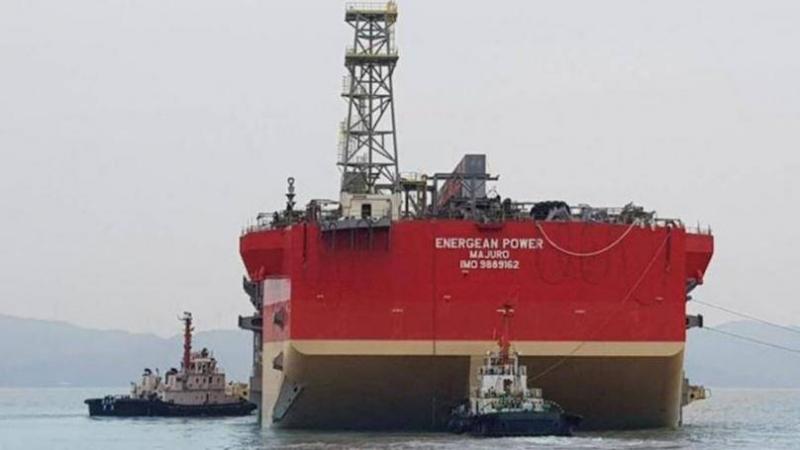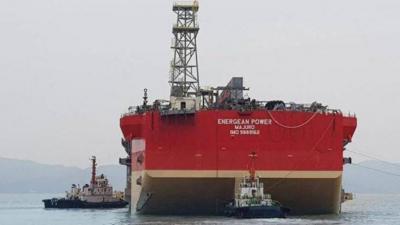With the arrival of the FPSO production ship belonging to ENERGEAN at the Karish field, the issue of border demarcation and oil has resurfaced, after losing attention in recent weeks due to the developments and results of the elections overshadowing other pressing and sensitive matters. It is noteworthy that the ship, contracted by Israel to explore for natural gas in the disputed Karish oil field within maritime boundary line number 29, spans an area of 1,430 square kilometers. Lebanon asserts that a significant portion of the mentioned field lies within Lebanese borders, while Israel insists it is entirely within its exclusive economic zone.
Is Lebanese oil now at risk? Oil and gas expert Dr. Charbel Skaff explains that Lebanon has not lost its right, but it is in a weaker position as it now faces a fait accompli. He says: the political authority in Lebanon must act immediately to decisively resolve the issue and take responsibility toward the people and history.
He asks: does the Lebanese state want line 29 or not? He states that if it wants it, it must take swift steps to affirm this line through two essential actions: First: notifying the company quickly; there should be no debate regarding line 29; Lebanon must announce to the company that it has rights in the Karish field, and the company must respect these rights or refrain from exploration until the border demarcation or maritime dispute between Lebanon and Israel is resolved. It is important to note that ENERGEAN's headquarters is in London and is listed on its stock exchange, meaning Lebanon should hire a law firm there to handle necessary legal matters.
Second: amend Decree 6433 to affirm line 29.
In response to a question, Skaff clarifies that the ship is for extraction, not exploration, meaning that the wells have been drilled and the extraction phase has begun. He adds: if the Lebanese state does not take steps to affirm line 29, it means it has abandoned it and must bear the consequences.
Regarding claims that the ship docked on the Israeli side and is therefore outside the conflict zone, Skaff explains that it is extracting from a disputed field, and this situation should be treated similarly to what happened in the Aphrodite field, where no company extracted oil until the dispute between Cyprus and Israel was resolved. He reiterates that the geographical presence of the ship in an entirely Israeli area outside the dispute does not mean it cannot extract from the disputed field.
He clarifies that the ship's equipment facilitates the extraction process, noting that Israel could extract via a pipeline and process the oil onshore, while the FPSO technology links multiple wells to expedite production.




